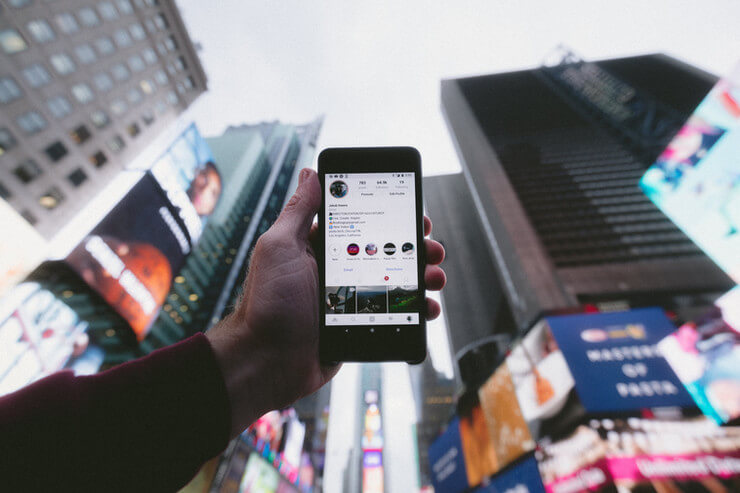
by Jana Johnson | Jun 29, 2023 | Marketing, Sales
As a hotel owner, you know the importance of marketing your property to attract visitors. But have you considered looking beyond traditional methods and focusing on your local community?
By getting to know your neighbors, you can create lasting relationships that will not only benefit your hotel but also boost the local economy. In this blog post, we’ll explore how to market in your backyard and why it’s important.
Why Local Marketing Matters
Marketing your hotel locally is essential for several reasons. Firstly, it allows you to build meaningful relationships with members of your community, who are more likely to recommend your hotel to friends and family. Secondly, it’s cost-effective since you don’t need to spend money on expensive advertising campaigns. And finally, it helps strengthen the local economy by encouraging people to stay, shop, and eat within the area.
Strategies for Marketing Locally
Here are some effective strategies for marketing your hotel in your backyard:
Host Local Events
Hosting events is an excellent way to get your hotel noticed within the community. You could organize a charity fundraiser, a wine tasting, or even a community clean-up day. By collaborating with other local businesses, you can promote your event to a wider audience and create partnerships that benefit everyone involved.
Leverage Social Media
Social media is a powerful tool for promoting your hotel locally. Ensure your hotel’s social media profiles are up-to-date and active, and engage with other local businesses and customers. You could also consider running social media contests or giveaways to encourage people to share your content and visit your hotel.
Collaborate with Local Businesses
By partnering with other local businesses, you can cross-promote each other and create a network of support. For example, organize a team sales blitz and go door-to-door with printed flyers of your hotel that outline your specific features and benefits. Mention the idea of cross-marketing services to the local businesses. You could offer discounts to customers who have visited a nearby restaurant or store, share coupons for display, or collaborate on a joint marketing campaign.
Marketing your hotel locally is an effective way to build meaningful relationships with members of your community, boost the local economy, and attract visitors. By hosting events, leveraging social media, and collaborating with local businesses, you can create a powerful network that benefits everyone involved.

by Jana Johnson | Feb 8, 2023 | Marketing, Sales
We’ve all had that “aha” moment. You know this is the time when something seems so obvious after the fact. In sales, it’s often said, if only I knew that before, I could have landed that deal!
The question is, would we really change the way we do business if we experienced that “aha” moment? I’m sure the answer would be yes if it led to making more money and bringing in more business.
But how can we make these “aha” moments more of a reality and less of a dream? The way to do this is by understanding when to make the most important sales calls and what to get out of these calls.
Follow up on Business You Didn’t Land
Once you have been turned down, it’s easy to give up on that potential customer. But this is the time you need to build a trace system and follow up with these potential customers. It really is the best time to learn and can help you tailor your future approach to talking to potential clients.
Technology has made it simple to organize client information and remind you when it is time to place a call. Consider using one of the best free CRM software programs as reported by Business News Daily, like Hubspot CRM, Zoho CRM, Insightly, or Salesforce.
These programs will help you organize your lead data for your follow-up calls.
Ask Your Potential Guests for Feedback
There could be many reasons your hotel did not align with group needs for a particular event and so you lost the business. If this happens you need to ask your customers for feedback. This is probably one of the hardest things to do in your business, but you will be glad you did.
Was it your pricing? Was it due to lack of meeting space? Maybe your hotel is not close enough to restaurants or entertainment. There may even be something you could change next time. For example, if your hotel was lacking shuttle service, maybe you could price out transportation and offer it as a one-time service.
The potential customer has nothing to lose by providing constructive criticism and you have everything to gain. Especially if “no” is a common word you are hearing from potential group bookings.
Re-Engage with Lost Leads
Leads go dark for many reasons. Your contact may be overwhelmed at work but remain interested in your hotel. Chances are, they will still remember you and you don’t want these leads falling off the grid after all.
The follow-up call shows you are interested in their future business. If you know they selected to go with another hotel, maybe the hotel they selected missed an important detail or they didn’t enjoy their stay.
Your follow-up will make an impression. If their event at the chosen locale wasn’t successful, then this could set you up for possibilities in the future. You may not get a commitment during this phone call, but nurturing that lead over time can turn a “no” into a future booking.
Turn Rejection into Opportunity
Create an action plan for future follow-ups. Your goal here is to stay at the forefront of their mind when a potential client is considering where to hold their next meeting.
Trace out another call in a few months. Maybe you have completed a renovation at your hotel. Or, maybe you just hosted a group meeting and you have a success story to share that is a potential idea for your lead.
You want them to remember you and your hotel so that your hotel is at the front of their mind the next time they are planning the next group event.
Communicate with Multiple Mediums
The bottom line is potential business doesn’t come knocking. You must work for it. Your business is the business of sales and while we can consider a small percentage of our business to come from direct phone calls, most of the time you are going to get your business by the effort you put into your follow-up.
Lead nurturing is all about following up. Sometimes it may take multiple calls to make contact, but the point is to keep trying. And, if your phone calls aren’t working, consider email.
Find other ways to keep your hotel in the running for future events. Connect on social media with popular apps for business such as Facebook or LinkedIn. Continue to promote your unique competitive advantage to stay at the forefront of their mind.

by Jana Johnson | Aug 25, 2022 | Marketing, Sales, Travel
If you manage a hotel or are new to owning a property, it doesn’t take long to recognize that the hotel sales position is one of the most integral parts of a hotel’s success.
The sales manager is responsible for generating room nights and increasing revenue during peak times plus building demand during the slow seasons.
This can be a challenge for even the most seasoned sales managers. The process takes a considerable amount of strategic planning, creativity, and forward-thinking to balance meeting sales goals while skillfully representing the hotel.
In this fluctuating environment, it is important to keep in mind that sales is a learned skill. An effective sales manager should be able to produce results despite hotel challenges and market conditions. This is accomplished by practicing a few habits for sales success.
Know Your Hotel and Your Competition
For sales efforts to be effective, you need to know the features, benefits, and weaknesses of your hotel as well as those of your competitors. For example, can you offer concessions like free breakfast, airport transportation, or a one-bedroom suite to give you that competitive edge? Superior sales managers understand the hotel at all levels and how to get creative and outshine the competition.
Be Open to New Technology
There are many ways to reach your end goal of driving occupancy. Successful sales managers try new strategies and the latest technology for reaching their target audience. Test drive new forms of social media to help reach your potential guests. Consider trying sales engagement platforms to help you create email templates and email blasts to reach multiple people at once. It’s also key to consistently review your strategies and question the best ways to spend your time.
Have Integrity and Authenticity
What separates the average hotel sales manager from a successful one? Integrity. Clients respond to genuine people with a core attitude of wanting to help, whether they get the sale or not. Be sure to always do what you say you will. You’ll want to develop a style of authenticity that builds trust, so your clients know you have done your best for them. It also assures them if any problems arise with the booking, you will be there to return their calls promptly.
Listen For Details
You may have heard the phrase, “Be interested, not interesting.” An enthusiastic attitude about your hotel is key, but before jumping in right away with all the features and benefits of your hotel, listen to what your clients’ needs are. Knowing how you can accommodate your clients’ needs will help you gain the edge over the competition. It’s important to ask probing questions and gather information to confirm if you are the right fit. You can never ask enough questions. This is vital in anticipating future needs—something all clients appreciate!
If you are looking to find wins in the competitive market of hotel sales, adopt these habits daily. Committing to a new behavior takes time and practice. Start by initiating one new strategy at a time and celebrate your small successes.

by Jana Johnson | Jul 21, 2022 | Marketing, Travel
Hotel sales teams should keep in mind the benefit of using local surroundings when working on filling a hotel and driving revenue. Gaining a pulse of the local scene will not only draw in guests from nearby companies, but it can also help drive revenue referred directly from locals and local businesses.
So how can your hotel leverage its resources locally? It’s going to take a combination of grassroots marketing plus online advertising. These efforts may include sales calls, word of mouth, free social media campaigns, and even referral bonuses.
The idea is to connect with your local market and build community relationships to help market your hotel and services. To determine the best approach, here are three questions hotel marketers should consider when looking for leads in your backyard.
Who are the companies in my backyard?
Take the time to meet key companies and event planners in your marketplace so that you will be thought of for business meetings and events. Drawing from the local businesses will give you an idea not only of potential corporate travelers but also of leisure travelers coming to the area. Coordinate with top vendors that surround the hotel and put together enticing packages that cannot be found at competitor hotels.
What type of business comes to the area?
It’s about understanding where travelers are visiting near your hotel so you can provide the ultimate experience. The Convention and Visitors Bureau (CVB) is often an underutilized source, but a great place to start networking and gathering information. Creating a good relationship with your local CVB will keep your hotel front of mind when the CVB works with event planners and group organizers from other locations. Also, the CVB can be a great resource to learn what companies maybe be relocating to the area and may need group travel rates.
What’s happening in the future?
No matter the time of year, there are most likely always weekend events, concerts, workshops, seminars, and entertainment happening in your area, which could be a source of revenue for your hotel. Checking in with apps such as Eventbrite and Ticketmaster can help you search by city, dates, times, locations, and maps.
Encourage your sales team to create a local event calendar that lists all the local happenings. This will help you stay on track and help you determine your target audience for marketing. Consider partnering with a local organization to offer unique packages that give your hotel an edge-up on the competition.
Think of your local community as an extension of your hotel’s sales and marketing team. With a targeted approach, your efforts could increase exposure and facilitate partnerships to help drive new and loyal business to your hotel.

by Jana Johnson | Feb 22, 2021 | Marketing
As travel demand strengthens, be sure to target the right audience with the right messages. Incorporating Instagram into your marketing plan could help you do this, with little to no marketing budget.
Instagram is one of the top 10 social media platforms available and with over 1 billion monthly active users, and it is made for hotels. It’s the platform for inspiring experiences and to post visually beautiful images.
With the way Instagram emphasizes the use of photos, it seems like a likely choice to use this platform to market your hotel. You can share the highlights of your hotel, create brand awareness, and encourage an atmosphere for guests to share their experience.
So, if your goal this year involves building your hotel brand, then let’s look at how to market your hotel on Instagram and how to be successful doing it.
Create an Easy-to-Spot Instagram Presence
First things first. Make sure your hotel’s profile is a business profile. This gives you the ability to place your profile under a category such as hotel, and will help target the right audience. Include all important information that makes access to your hotel easy including the phone number. In the about section of your profile, be sure to include an Instagram bio of your hotel with a direct link to the website.
By default, your location is generated by Instagram automatically. When someone posts a picture of your hotel and sets your hotel as the location, the content automatically goes under your location and is visible to anyone searching by location.
Once you have the basics set up, you’ll need to work towards creating an easy-to-spot Instagram presence.
Showcase Your Hotel’s Story by Sharing Images
Next, you’ll want to define your hotel’s unique selling points then strategize a way you can make this seen through photographs.
Is your hotel a boutique property with a theme? What about a luxury property with a high-end restaurant?
Once you’ve determined your ideal customer, you will want to create a branding strategy that will help you stand out. This means you cannot expect to create an isolated post and hope that this works. You will want to tailor your photos and content towards that, and stick to it.
A benefit of Instagram is how you can create the ideal image of your hotel through photographs. When posting photos of your hotel, be sure to showcase an experience. People are more likely to pay money to stay at a hotel that is Instagrammable, in other words worthy of sharing on social media.
Once you have the hang of posting photos, it’s highly recommended to take advantage of posting videos of your hotel on Instagram.
Some of the best ways to utilize videos to spotlight your hotel include:
- Rooms
- Amenities
- Food
- People with testimonials
- Local Attractions
Videos help promote your hotel in a friendly way without selling. They create an emotional connection for guests planning a vacation and give your brand a voice to tell your story.
Find Your Future Guests and Boost your Marketing with Hashtags
Targeting the right audience with the right messages will have a profound effect. If you are marketing to everyone, you will have a hard time finding, and keeping those high-valued guests.
Using a combination of letters and numbers preceded by a symbol, otherwise known as hashtags (e.g., #hotel) will help you find your key audience and increase the performance of your marketing. If you want to be seen on social media you will have to learn to use them to your benefit.
Here’s what hashtags can do for you:
- Help you get noticed and establish you as a brand leader
- Find an expanded audience by using popular hashtags your audience is already using
- Users can search for hotel criteria using hashtags relevant to their interest
- Make your content and photos more visible
There’s no right or wrong number of hashtags, but Hootsuite reports that the consensus is about 11 hashtags per post is good to start with. To help you find the right hashtag for your brand, use free search tools like All Hashtag or Ingramer Hashtag Generator to research what hashtags would perform best for your hotel and add them when appropriate.
Engage with Others
Just as you would engage with guests in your lobby, schedule regular time each week to engage with guests online. This means answering comments and questions on your own feed, similar to how you respond to reviews.
Another option is posting fun text or contests to encourage engagement with your followers. Post a photo of your hotel, and ask followers to cast a vote. Or even pose questions under photos to encourage comments.
And don’t forget, people on vacation love to take Instagrammable photos! Be sure to make it easy for guests to share posts from your hotel. Afterall, it’s a free way to create awareness and build community!
Following the right accounts like a popular neighboring restaurant, could also help. Tag them on related posts and most likely they will reciprocate. Together you can help promote each other.
Just remember, the more engagement you give, the more you get.
Keep a Pulse on the Competition
What are other hotels doing to market themselves on Instagram? Locate hotels similar to your hotel’s business model on Instagram and review what they are doing it right, and wrong. Use that as a model for how you can develop a strategy for your hotel.
Put Your Plan in Motion
This will take some time, of course, but after putting these steps in motion, you will see how it will become easier to grow your targeted audience.
Instagram is simple and versatile. It’s a great way to make your hotel stand out from the competition and send the right messages to your future guests.
As travel demand strengthens, be sure to target the right audience with the right messages. Incorporating Instagram into your marketing plan could help you do this, with little to no marketing budget.
Instagram is one of the top 10 social media platforms available and with over 1 billion monthly active users, and it is made for hotels. It’s the platform for inspiring experiences and to post visually beautiful images.
With the way Instagram emphasizes the use of photos, it seems like a likely choice to use this platform to market your hotel. You can share the highlights of your hotel, create brand awareness, and encourage an atmosphere for guests to share their experience.
So, if your goal this year involves building your hotel brand, then let’s look at how to market your hotel on Instagram and how to be successful doing it.
1. Create an Easy-to-Spot Instagram Presence
First things first. Make sure your hotel’s profile is a business profile. This gives you the ability to place your profile under a category such as hotel, and will help target the right audience. Include all important information that makes access to your hotel easy including the phone number. In the about section of your profile, be sure to include an Instagram bio of your hotel with a direct link to the website.
By default, your location is generated by Instagram automatically. When someone posts a picture of your hotel and sets your hotel as the location, the content automatically goes under your location and is visible to anyone searching by location.
Once you have the basics set up, you’ll need to work towards creating an easy-to-spot Instagram presence.
2. Showcase Your Hotel’s Story by Sharing Images
Next, you’ll want to define your hotel’s unique selling points then strategize a way you can make this seen through photographs.
Is your hotel a boutique property with a theme? What about a luxury property with a high-end restaurant?
Once you’ve determined your ideal customer, you will want to create a branding strategy that will help you stand out. This means you cannot expect to create an isolated post and hope that this works. You will want to tailor your photos and content towards that, and stick to it.
A benefit of Instagram is how you can create the ideal image of your hotel through photographs. When posting photos of your hotel, be sure to showcase an experience. People are more likely to pay money to stay at a hotel that is Instagrammable, in other words worthy of sharing on social media.
Once you have the hang of posting photos, it’s highly recommended to take advantage of posting videos of your hotel on Instagram.
Some of the best ways to utilize videos to spotlight your hotel include:
- Rooms
- Amenities
- Food
- People with testimonials
- Local Attractions
Videos help promote your hotel in a friendly way without selling. They create an emotional connection for guests planning a vacation and give your brand a voice to tell your story.
3. Find Your Future Guests and Boost your Marketing with Hashtags
Targeting the right audience with the right messages will have a profound effect. If you are marketing to everyone, you will have a hard time finding, and keeping those high-valued guests.
Using a combination of letters and numbers preceded by a symbol, otherwise known as hashtags (e.g., #hotel) will help you find your key audience and increase the performance of your marketing. If you want to be seen on social media you will have to learn to use them to your benefit.
Here’s what hashtags can do for you:
- Help you get noticed and establish you as a brand leader
- Find an expanded audience by using popular hashtags your audience is already using
- Users can search for hotel criteria using hashtags relevant to their interest
- Make your content and photos more visible
There’s no right or wrong number of hashtags, but Hootsuite reports that the consensus is about 11 hashtags per post is good to start with. To help you find the right hashtag for your brand, use free search tools like All Hashtag or Ingramer Hashtag Generator to research what hashtags would perform best for your hotel and add them when appropriate.
4. Engage with Others
Just as you would engage with guests in your lobby, schedule regular time each week to engage with guests online. This means answering comments and questions on your own feed, similar to how you respond to reviews.
Another option is posting fun text or contests to encourage engagement with your followers. Post a photo of your hotel, and ask followers to cast a vote. Or even pose questions under photos to encourage comments.
And don’t forget, people on vacation love to take Instagrammable photos! Be sure to make it easy for guests to share posts from your hotel. After all, it’s a free way to create awareness and build community!
Following the right accounts like a popular neighboring restaurant, could also help. Tag them on related posts and most likely they will reciprocate. Together you can help promote each other.
Just remember, the more engagement you give, the more you get.
5. Keep a Pulse on the Competition
What are other hotels doing to market themselves on Instagram? Locate hotels similar to your hotel’s business model on Instagram and review what they are doing it right, and wrong. Use that as a model for how you can develop a strategy for your hotel.
Put Your Plan in Motion
This will take some time, of course, but after putting these steps in motion, you will see how it will become easier to grow your targeted audience.
Instagram is simple and versatile. It’s a great way to make your hotel stand out from the competition and send the right messages to your future guests.

by Jana Johnson | Dec 16, 2020 | Marketing
For the better part of 2020 most people have been in quarantine and dreaming of better times. With all of that down time, many people are scouting out destinations and making their next travel plans.
Luckily, there are numerous ways to reposition your hotel and prepare for recovery.
Even though travel as we know it has changed, you will still need to make strategic marketing decisions to boost your bottom line. To turn customer reluctance into bookings, you will want to increase awareness of your brand and market your hotel with a rebound focus in mind.
With so many different options for marketing it can be overwhelming. So what should a struggling hotel owner do? Once you have an idea of what the travel triggers are, then it’s time to make a plan of action to help get your hotel noticed!
First, Watch for Trends and Patterns to Help Prepare
Coronavirus (COVID-19) continues to impact travel. But with news of effective vaccines in the near future, plans to travel in 2021 look more promising. Key findings in a survey by Traveler and Consumer Sentiment Survey Results show over 60% of American travelers said Pfzer’s promising vaccine announcement made them more optimistic that they can travel safely in 2021.
Most likely you already have a pulse on travel restrictions, at least locally. To help you forecast and plan for the initial rise in travel, you are going to want to pay special attention to a few indicators:
· Government restrictions on travel are easing and people are no longer staying at home
· Restaurants are starting to reopen with limited capacity
· You’re starting to receive more inquiries and future bookings
· Your website is seeing increased organic traffic
Once you see that a few of these areas are starting to pick up, then it may be time to connect with your past and future guests and tell them why they should choose your hotel.
Increase Brand Awareness
Brand awareness means spreading the word about your hotel consistently. Nowadays, you do not need a big budget to promote your brand. First identify what your hotel has to offer that sets it apart from the rest of the pack. Then set in place simple yet effective ways to promote your hotel such as:
· Post regularly on social media across multiple channels
· Try out a mail promotion to those in your city
· Paid social advertising on Twitter
If your hotel is not already active on social media, this will be a prime opportunity to build your online presence and solidify your brand.
Make Your Website Simple and Searchable
Remember, people will be leery about traveling at first. Adding key content to your website will be the first place your future guests go to find out more about your operating procedures, booking procedures and what amenities are still available.
Guests will feel more confident about booking stays if they know the protocol up front.
Check out your competitor websites and see where you can improve your website for a bit of leverage. Focus on ways you can communicate operations efficiency such as:
· Adding guest content that highlights memorable stays during COVID-19
· Posting quality images focusing on outdoor amenities and open, indoor shared spaces
· Promoting a flexible cancellation policy to help incentivize potential travelers on the fence about booking a future stay
Keep these new priorities in mind when showcasing your brand so that your hotel first comes to mind when customers are making their travel decisions.
Boost Brand Awareness with Online Ad Campaigns
Coming out of the travel slump you are going to want to show off your property and let travelers know what you have to offer! A great way to do this is reallocating some of your budget to social media advertising.
If you have the ability to reallocate part of your budget to advertising, you will see just how quickly you can reach a large, targetable audience.
First consider who your target audience is and your peak booking season.
Having a good understanding of these two key elements will help you to determine which platform will yield the best results and the time of year to run your ads.
Is your hotel a perfect destination for weekend getaways or weddings? If so, you are going to want to focus on scheduling ads on the weekends. You might also consider Pinterest or Instagram for to reach wedding planners and travelers planning vacations.
Perhaps the majority of your bookings are weekday business travelers. This group is most likely booking travel during business hours, so that is when your ads should run. LinkedIn, Facebook or Twitter may be your priority platforms, especially if you are considering using a targeted email list.
Once you’ve determined your target audience, ad schedule, and platform, you should then be able to calculate your ad budget.
After that it’s time to create simple, mobile-friendly ad content for posting. Keep this part simple! With certain platforms you will even be limited to three mobile lines of text, which is not very much. In your content include select keywords based on what applies to your hotel such as “skiing” or “business travel.”
Experiment on one or two channels of advertising and focus your content on amenities and local events that will draw travelers to your hotel.
Create a Plan for Direct Bookings with a Focus on Local Guests
Your best option for affordability and controllability is to target guests that are rebooking, or that already have familiarity with your hotel.
Besides listing your new operations standards on your website, you can also try to appeal to the local market focusing on the concept of staycations. Here are some additional tips for marketing success:
· Consider partnering with local business and restaurants around you to offer a discounted meal with a discounted stay at your hotel.
· Marketing your offerings on social media platforms, can be the perfect sales tool to reach customers in your backyard. From there they can click on your website for seamless booking.
· Look for ways to incentivize those looking to say somewhere safe during uncertain times. Past guests can also make the best new customers. If they enjoyed their stay in the past, they would consider your hotel before staying somewhere new.
· Hotel loyalty programs encourage customers to return, but with added perks. Consider rewarding your loyal guests with rewards such as a purchase one night get the second night discounted.
With a bit of creativity, launching a few of these ideas could help increase bookings at your hotel. Just remember there’s never one solution. Flexibility will be key moving forward based on new data and changing travel trends that emerge over the course of the next year.





